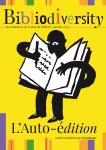
While Europeans are in a struggle or in forced coexistence with nature, the Chinese are, according to Confucian tradition, in symbiosis, in communion, mutually dependent. “We look at each other, the sky and I, without tiring”, sings the famous poet Li Po, cited by Yue Dai Yun. In the countless legends recounted by Yue Dai Yun, man is or becomes nature: how many young girls and (formerly human) gods or goddesses have been transformed into hills and their tears into streams? Mountains, river water and the immensity of seas are not things in China, but living realities that teach man time, death and the insurmountable. As a result, says Yue Dai Yun, we must “not force ourselves or, worse, oppose nature, but rather adapt to ourselves.” For many Chinese people, nature is the source, not the object, of intellectual thought. There is nothing like climbing, for example, to think: “The succession of mountains has no limits for the Chinese, for it represents the elevation of their mind and the expansion of their thought.” Let us not seek out the East-West opposition throughout these two texts. Doesn’t the aforementioned Chinese veneration for high reliefs correspond to our own tradition, that of the Sinai and the Thabor, not to mention the mount of the well-known Sermon? Would our mystics argue when the Chinese say, according to Yue Dai Yun: “There are mountains beyond the mountains; there is another world beyond ours”? And does China have a monopoly on wonder? The magic of nature’s products, which Miao women take to market in autumn, these wild, dazzling red fruits, these leaves of palm – Aristotle also knew this magic. His ideas, according to Anne Sauvagnargues, “were always limpid, full of rocks, animals, men and the starry sky that we observe at night when we lie on the ground.”
Reading these two very different, very literary texts, the reader learns about visions of the world and of nature that were often inherited from the distant past. Distant? Not really! The story of saving the moon", in which Yue Dai Yun heroically took part in her childhood, tells us how much traditional myths permeate men and women today and just may give them the strength to fight for a less despoiled nature
Year of publication: 1999
In this collection “Near and Far”, two authors, one Chinese, the other French, meet and exchange on topics chosen for their relevance in our daily life and in human relations. They tell us about their own experience and explore the roots of their respective civilizations to discuss how philosophers, writers and poets spoke of these topics.


























